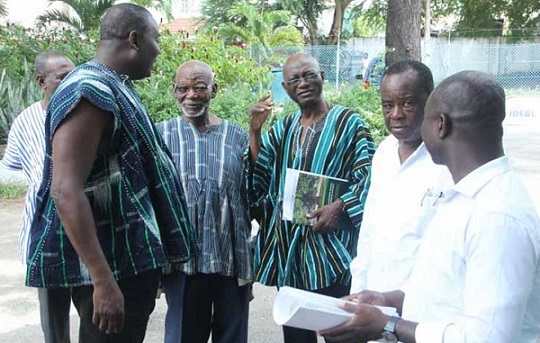- Contact us on - Contactez-nous sur - Contacte-nos em
- +233-30-277-8867/8
- +233-30-277-2548
- secam@secam.org
Advocacy Group in Ghana Urges Youth to Shun Political Conflicts Ahead of General Elections
Advocacy Group in Ghana Urges Youth to Shun Political Conflicts Ahead of General Elections
CANAA || By Damian Avevor || 03 October 2016
 The Northern Development Forum (NDF), an advocacy group in Ghana, has called on the youth of the three Northern Regions of the country to ignore any person or group of people who attempt to use them to foster conflicts just to achieve their parochial political ambitions.
The Northern Development Forum (NDF), an advocacy group in Ghana, has called on the youth of the three Northern Regions of the country to ignore any person or group of people who attempt to use them to foster conflicts just to achieve their parochial political ambitions.
Ghana is experiencing political campaigns ahead of the Presidential and Parliamentary elections scheduled for December 7, 2016.
Dr. Hakeem Wemah, Chairman of the NDF appealed for dialogue with all Political Parties who were seeking the mandate of Ghanaians to govern the country.
“We would like to meet with the leadership of the registered political parties for them to elaborate on the development programme that they intend to roll out for the three northern regions of Ghana,” he noted, expressing the hope to have an interaction with these Parties on October 20.
Launching the Northern Ghana Development Status Report dubbed: Sustaining the Northern Ghana Development Agenda in Ghana’s Public Domain, in Accra on September 29, Dr. Wemah, noted that one of the major goals of NDF is unity and peace for efficient and effective development.
The launching, attended by members of the NDF, Development partners, Diplomatic Missions, Political Parties and Religious Bodies, was to draw attention to the general public through the publication of the Report, the status of the three Northern Regions.
“It is about providing opportunities for all; it is about upholding fundamental human rights nurtured by good governance; it is about addressing inequalities, sustainability, equilibrium, tranquility and national cohesion.”
He lamented that though Ghana is one of the few African countries that had not experienced large-scale violence or civil war since independence, the most persistent violence were in the three Northern Regions.
As one of the few African countries that has not experienced large-scale violence or civil war since independence, he said Ghana was generally considered a stable and peaceful country within the West African sub-region.
“Ghana has even played an important role in peacekeeping assignments in other countries and welcomed a significant number of refugees from some war-torn West African States, he added.
He said despite being seen as a beacon of hope for democracy, good governance, and stability in Africa, Ghana was still plagued by pockets of violence emanating from ethnic tensions, resource based conflict, religious differences, chieftaincy disputes and political mayhem that has claimed lives and destroyed the homes and property of many victims.
He noted that “the so called Northern conflict that occurred in 1994 mainly in the eastern corridor of the Northern Region of Ghana, although not the first of such occurrence in the Region, was nevertheless the most widespread and devastating of its kind.”
The NDF Chairman mentioned some main factors that might be identified as the sources and causes of conflicts in most parts of Northern Ghana which were Ethnicity, Religion, Language, Land and Chieftaincy but partisan politics provided the spark that ignites the keg of conflicts.
He noted that the conflict resolution and management interventions implemented in Northern Ghana to date had yielded only short term stability, partly because they had not addressed the root causes of the conflicts such as poverty, unemployment, human rights abuses, weak governance, and inequality (and encompassed in inequality, feelings that local residents have described as struggles for recognition, respect, and self-esteem).
He said addressing root causes of conflict for sustained peace is a long-term objective that involves the promotion of inclusive development, which could reduce inequalities between groups and help diminish the likelihood of violent conflicts.

